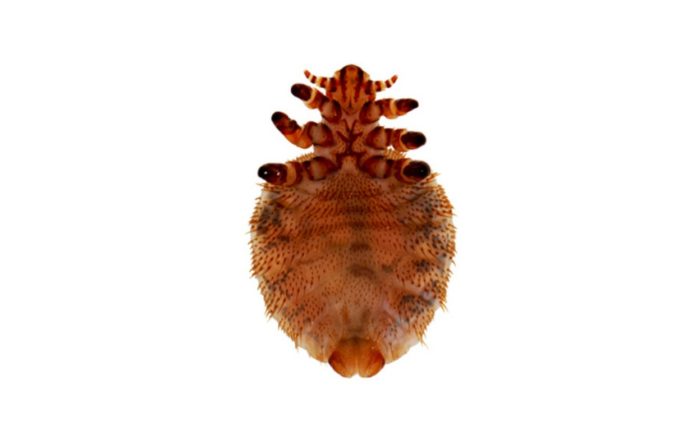A new study says that the first louse to live on a mammal probably started out as a parasite of birds. Tens of millions of years ago, when the lice moved from one host to another, it was the start of a long relationship between mammals and lice. It set the stage for their coevolution and gave the lice more chances to spread to other mammals.
The study, which was published in the journal Nature Ecology and Evolution, examined the family trees and genomes of lice and their mammalian hosts. The effort showed that many parallel branches and twigs are shared by the two trees.
The researchers found that the branching points, or places where one group of mammals started to diverge into different species, were frequently echoed in the genomes of the lice that parasitized those mammals.
“In this paper, we use data from genome sequencing to show that a major newly recognized group of mammalian lice, including lice of humans,” according to the study lead author Kevin P. Johnson, “originated on the common ancestor of Afrotheria, a group of mammals primarily of African distribution that includes elephants, hyraxes and elephant shrews, among others.”
By switching hosts, these lice colonized different mammalian groups.
Based on their dietary preferences, lice can be divided into two types. According to Johnson, sucking lice penetrate the skin to feed on their hosts’ blood while chewing lice gnaw on skin or secretions. Both kinds of lice live on mammals, but only sucking lice live on mammals.
Recent genetic research showed that two families of chewing lice that also feed on mammals are closely related to sucking lice, and “each of the major groups within this newly identified lineage occurs on at least one member of Afrotheria,” the researchers said.
Elephants, elephant shrews, hyraxes, golden moles, aardvarks, and other mammal species are part of the ancient lineage of mammals known as Afrotheria.
According to that research, lice’s first hosts among mammals were thought to be Afrotheria members. Johnson and Doa studied the evolutionary histories of mammals and their lice while broadening the genomic sampling of mammalian louse genomes to include more lice connected to Afrotheria. They specifically included hyrax and elephant shrew lice.
According to their investigation, the chewing and sucking lice that fed on mammals were most anciently found on elephants, hyraxes, and elephant shrews.
This demonstrates that these mammalian lice initially infected a unique set of African mammals before moving on to other mammals, according to Johnson.
Johnson noted that switching hosts from birds to mammals was quite uncommon. The scientists discovered evidence that this only happened a few times, including to some marsupials, South American rats, and Madagascan lemurs.
But once lice mastered feeding on mammals, they were able to jump more readily across different types of mammals and probably had more opportunities to do so. The investigation discovered that while some mammalian populations split apart, for instance geographically, their lice also diverged.
Although additional research is needed to trace the evolutionary history of lice and their hosts, Johnson said that lice likely originally parasitized dinosaurs or birds 90–100 million years ago.
“And then, after dinosaurs went extinct roughly 65 million years ago and birds and mammals really diversified, the lice also started to jump to new hosts and diversify,” he added.
Image Credit: Getty
You were reading: New Study Hints At Origins Of Lice, Including Humans
